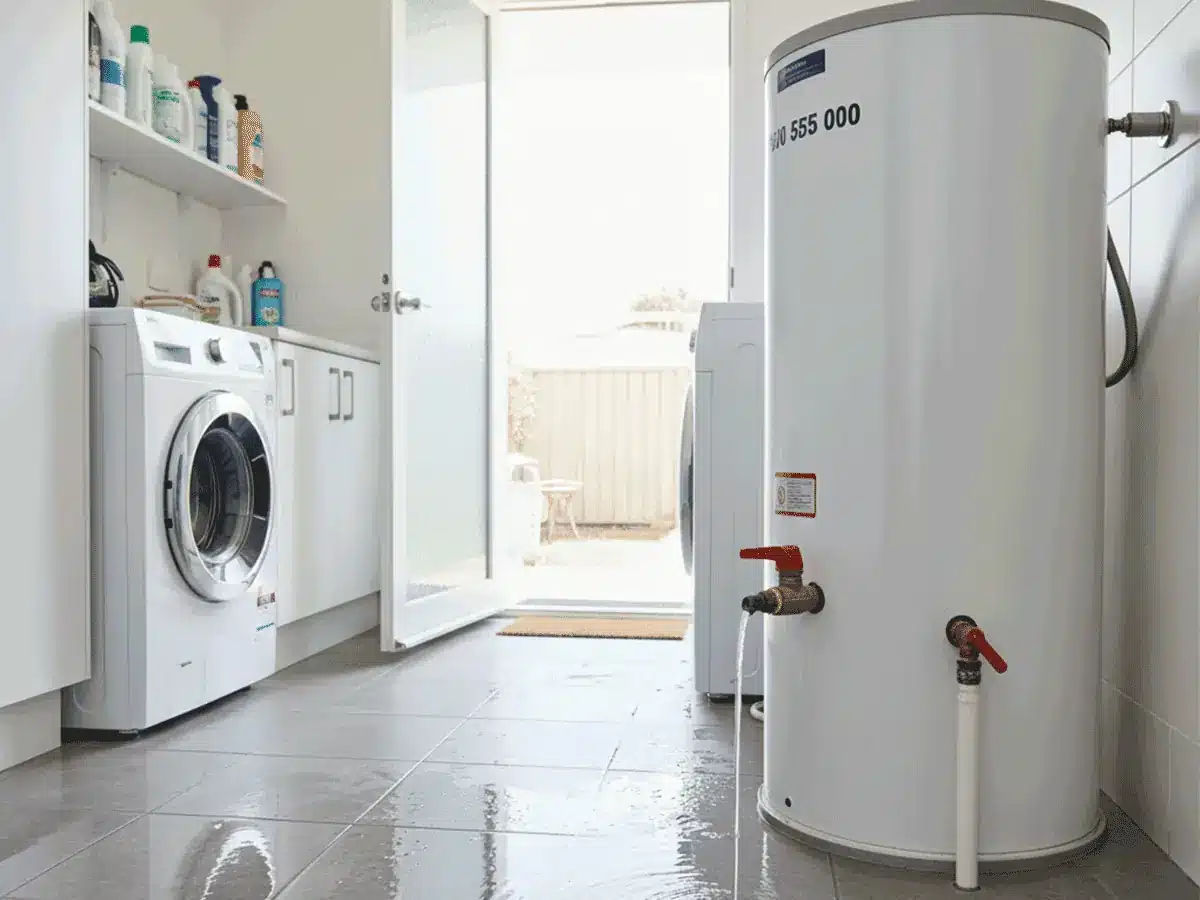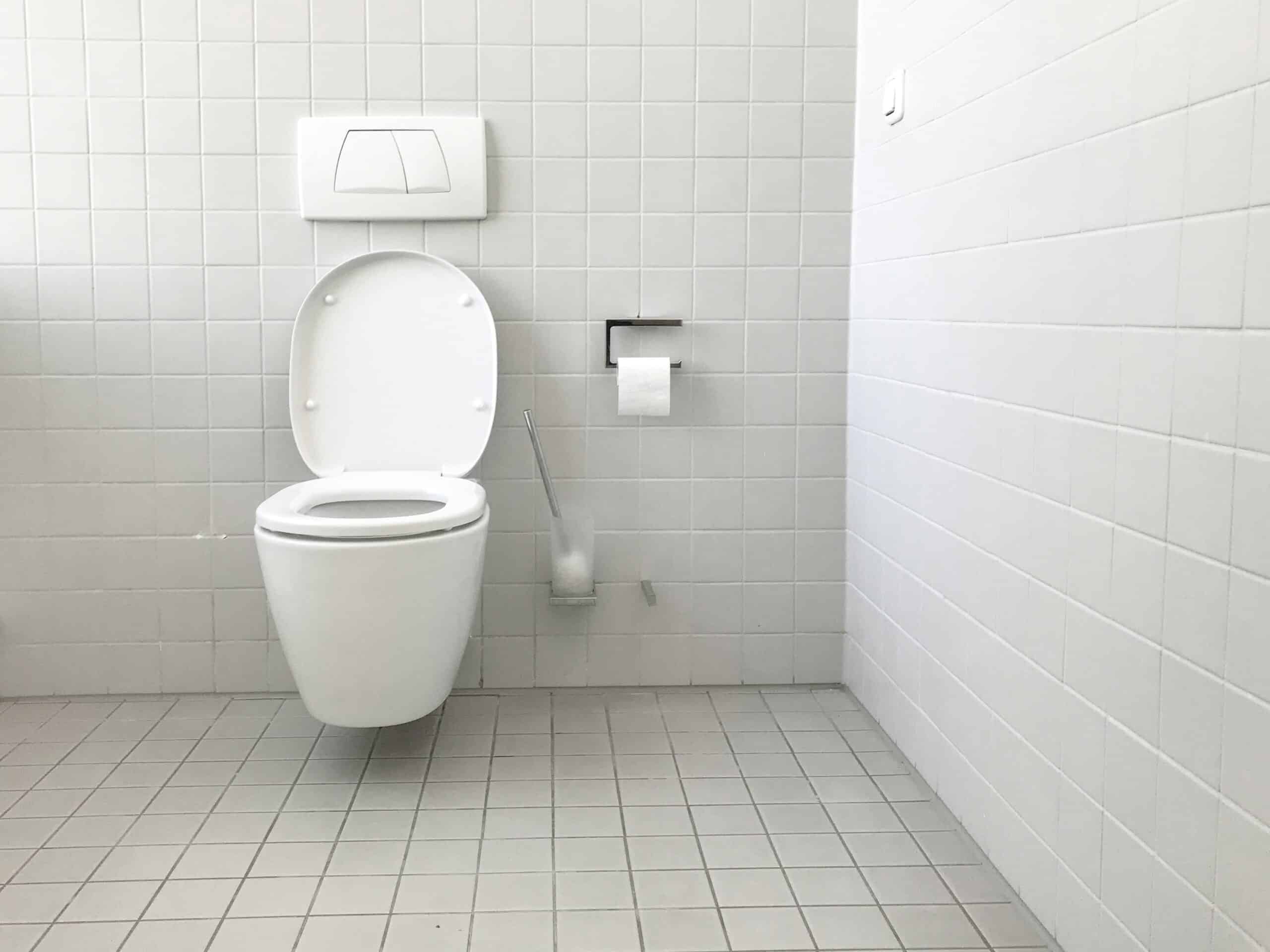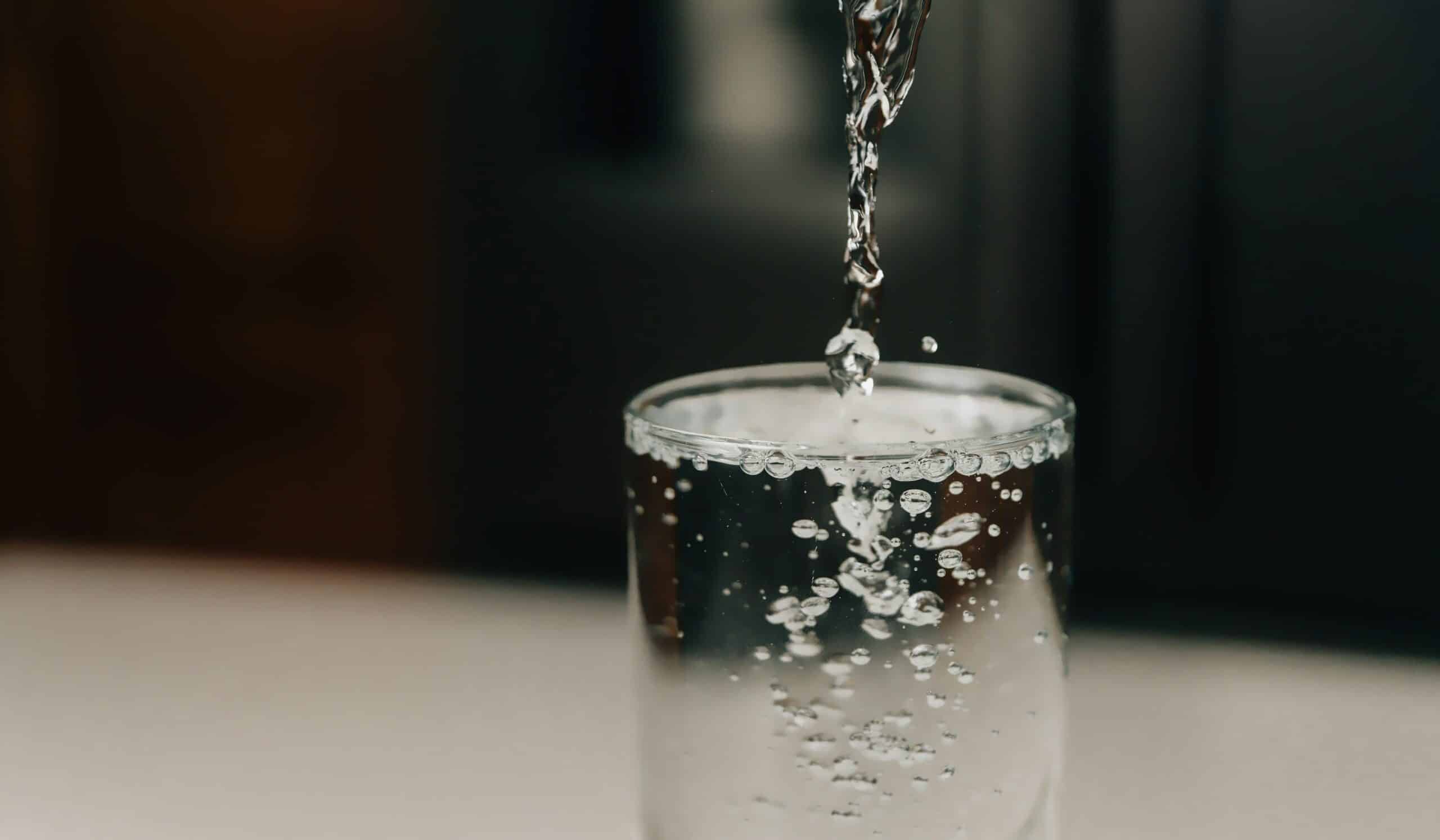A puddle of water forming around your hot water system is never a welcome sight. Whether it’s a minor drip or a significant flood, a leaking water heater signals a problem that needs immediate attention. Ignoring it can lead to property damage, skyrocketing water bills, and a cold shower you won’t forget.
Here’s a breakdown of why your hot water system might be leaking, what you can safely check yourself, and the critical point at which you need professional help.
1. Understanding the Common Causes of a Leak
Not every leak means your tank is ruined. The cause is often related to one of the system’s components:
The Tank Itself (The Worst-Case Scenario)
Over time, the protective anode rod inside the tank degrades, exposing the steel tank to corrosion. Once the internal lining fails, rust and corrosion can create pinhole leaks in the tank wall. If the water is leaking directly from the side or bottom of the main tank, replacement is usually the only solution.
Temperature and Pressure Relief (TPR) Valve
The TPR valve is a vital safety mechanism designed to open and release water if the temperature or pressure inside the tank gets too high. If the valve is dripping or running constantly, it could mean:
- The water temperature is set too high.
- The water pressure entering your home is too high (requires a pressure reduction valve adjustment).
- The valve itself is faulty and needs replacing.
Loose or Faulty Connections
Water heaters have multiple connections—inlet and outlet pipes, drain valves, and heating element gaskets. Over time, these fittings can loosen due to expansion and contraction, or the washers inside them may wear out, leading to a visible drip.
Condensation
In some cases, especially with high-efficiency or newly installed units, the water around the base might just be condensation forming on the outside of the tank. This is usually minor, but it can be mistaken for a serious leak.
2. DIY Troubleshooting and Quick Checks
If you discover a leak, your first priority is safety and minimising damage.
- Shut Off the Power/Gas: For an electric unit, switch it off at the circuit breaker. For a gas unit, turn the gas supply valve to the OFF position. This prevents the heating elements from trying to run while the tank is losing water, which could burn them out.
- Turn Off the Water: Locate the cold water inlet valve (usually a handle or tap on the pipe entering the unit) and turn it off. This stops the tank from refilling and prevents further leaking.
- Check the Leak Location: Use a towel to dry the outside of the tank. Is the leak coming from a pipe, the TPR valve, or directly from the tank body? This helps diagnose the source.
- Test the Drain Valve: If the leak is coming from the drain valve at the bottom, try tightening it gently. If it persists, you may be able to replace the cap or faucet component yourself—but be prepared for the water inside to drain out!
⚠️ Important Safety Note: Never attempt to repair an internal tank leak or complex electrical/gas components yourself.
3. Signs It’s Time to Call a Professional Plumber
Some leaks are beyond a quick fix and require a licensed professional. You need to call a plumber immediately if:
- The Leak is from the Main Tank Body: A leak coming directly from the side or bottom of the tank means the steel has corroded. This is not repairable, and the entire unit needs to be replaced.
- The Leak is Severe or a Flood: If you cannot stop the flow of water, you need urgent professional assistance to prevent major property damage.
- The TPR Valve is Constantly Running: This indicates a serious internal pressure issue that could lead to a burst tank if not resolved.
- Your Water Heater is Old: Most standard storage tanks have a lifespan of 8 to 12 years. If your leaking unit is nearing this age, replacement is more economical than repair.
- You See Discoloured Water: If the water draining from the tank is rusty, it’s a sure sign of internal corrosion.
👉 Don’t wait! For urgent leaks, our 24/7 emergency service in Perth is ready to secure your home and prevent further damage.
Final Word: Prevention is the Best Cure
While unexpected leaks happen, proper maintenance can significantly extend the life of your hot water system. Consider scheduling an annual service to:
- Flush the Tank: Remove sediment buildup that can trap moisture and accelerate corrosion.
- Inspect the Anode Rod: Check and replace the anode rod (the “sacrificial” component) before it completely wears out.
- Test the TPR Valve: Ensure the pressure relief mechanism is working correctly.
At ASAP Trades, we specialise in quick and reliable hot water system repairs and replacements across Perth. From minor valve repairs to a full system upgrade, we have the experience and local knowledge to keep your hot water running safely




